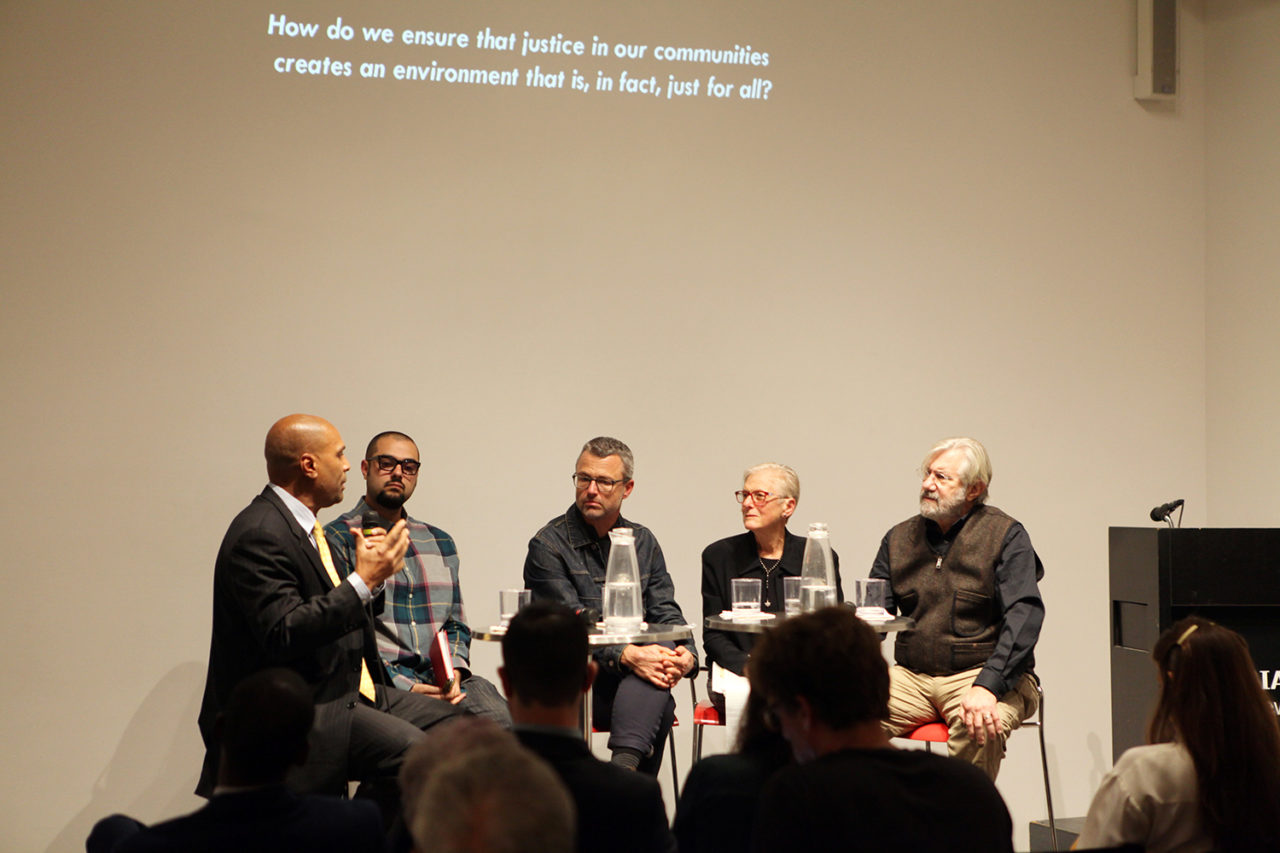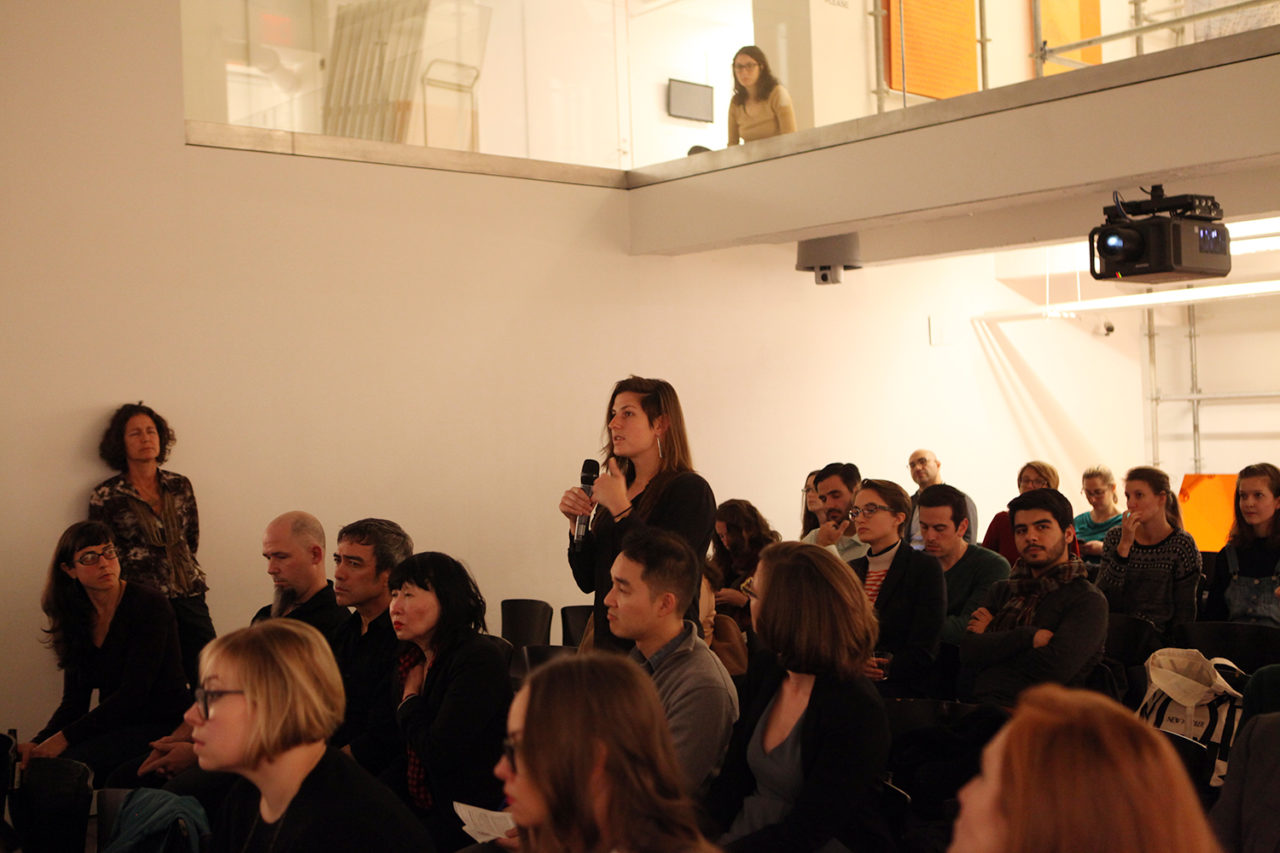by: By Christina Hernandez, A.L. Hu, Michaela Metcalfe, Jessica Morris, Ayodele Yusuf
On 11.17.17, the AIANY Civic Leadership Program (CLP) hosted its second and final public program, “…And Justice for All: Reconstituting Just Potentials.” Exploring the complex duality of justice and injustice, the event brought together five practitioners from multidisciplinary backgrounds who are dedicated to transforming the justice system through activism, policy reform, community programming, and design. They discussed how their efforts have impacted, or will impact, spatial and social injustices within the criminal justice system in New York City and beyond. With presentations followed by a discussion moderated by Dr. Susan Opotow, the evening provided a range of perspectives on justice reform—who it is for, what it looks like, and how it works—and ongoing efforts toward a more just future for those within the criminal justice system.
Dr. Harold Appel, a neurologist who has dedicated his life’s work to providing medical services for over 30 years within the corrections system, shared his experience and provided historical context to the injustices that have plagued the criminal justice system in New York City for many years. He reminded us that each detainee is a human being and the facilities provided for detention are not fit for human occupation. He recommended closure of facilities and releasing detainees that should not be held. Further, he expressed an imperative for treatment of mental illness and addiction.
Lex Steppling, lead national organizer with JustLeadershipUSA, shared how he is using his voice to call for the transformation of the justice system through advocacy and activism. He called for total system change by going beyond reform, beyond radical transformation, beyond “fringe” movements, and setting a new precedent that reduces harm and rejects the sanctioned torture that is prevalent in our criminal justice system. He called for normalizing deincarceration, noting that historically, it has not resulted in a rise in crime rates. He reminded the audience that the AIA has a Code of Ethics and encouraged exploration into the possibilities of abolition.
Dan Gallagher, principal of NADAAA, shared a vision for the physical space of justice reform through the efforts of the Justice in Design team, which culminated in a report presenting innovative design and programming guidelines for future borough-based Justice Hubs. Gallagher believes that design could be an active and integral part of the conversation about justice reform. He expressed the importance of creating a model that is civic, with proximate services and a community understanding that is positive.
Fernando Martinez, Project Director at the Osborne Association, demonstrated actionable justice reform through innovative education and advocacy programing at the Fulton Community Reentry Center in the Bronx. He spoke of normalizing reentry and removing the institutional mindset to create a supportive community environment.
Finally, Dr. Susan Opotow, Professor and Sociologist at John Jay College of Criminal Justice, opened the moderated discussion with the question, “Who counts?” She described the justice of exclusion and inclusion and how stakeholder involvement could include all communities, those detained and families impacted by the criminal justice system. She continued with the questions, “Who decides? Who’s involved?”
The event brought to light injustices that are part of the urban fabric and reminded us that, as citizens, we are all responsible for ensuring that our city is fair and serves to improve the quality of life for all. Through our collective power, we can











